The Making of Maggie Lindemann
The singer spoke with V exclusively about her pre-show process, taking control over her music, and her debut album, SUCKERPUNCH.
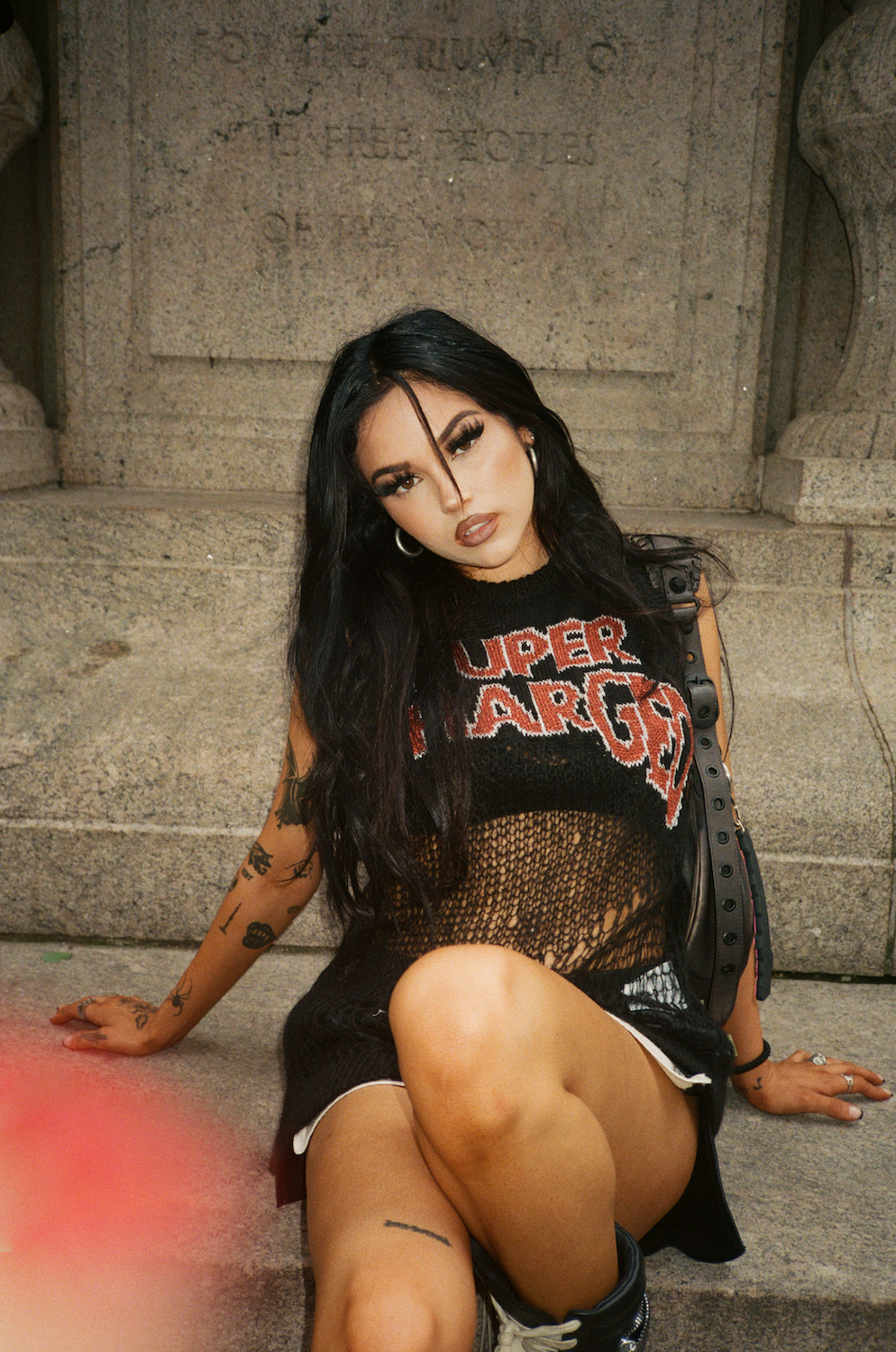
You may have heard of Maggie Lindemann, but do you know her?
For a long time, the real Maggie Lindemann was nowhere to be found, cast aside by record labels who saw her as a pretty teenager with a good voice who could score them quick success on the pop charts (literally… her first hit pop song was called “Pretty Girl.”)
But for Lindemann, who grew up on rock music, releasing pre-packaged pop songs felt fake. As her popularity grew, she realized that she needed to get out – and fast.
Now 24, Lindemann is in the driver’s seat of her own career, making the pop-punk music she’s always wanted to under her very own label. In 2021, she released the Paranoia EP, which allowed her to find her footing as a young artist and determine which direction she would move in sonically.
When I met Lindemann, she was gearing up to perform a few songs from her unreleased debut studio album, SUCKERPUNCH, which is due Sept. 16, for the first time in front of a small crowd at Brooklyn’s Baby’s All Right. “Everything I do now is me,” she said. “It doesn’t feel like I’m putting on a show, and I hope everyone sees that.”
In many ways, SUCKERPUNCH, a detailed web of hyperpop-meets-punk tracks and nostalgic, early-aughts punk anthems, chronicles Lindemann’s journey to self-actualization. But, it also serves as a triumphant response to the music executives who stole her sound, as she comes into her own both as a musician and as a person.
V sat down with Lindemann earlier this month to talk about performing, her growth as an artist, and her new music.

V Magazine: Walk me through your general pre-show routine.
Maggie Lindemann: Before I perform, it’s usually nothing crazy. I don’t have a before-show ritual, really. I just have everyone leave the room and I do vocal warm ups like 15 minutes before.
V: Why have people leave?
ML: You don’t sound pretty doing vocal warmups. I don’t want anyone to hear me like that. And then after that, I’m kind of just chilling. I start getting really nervous and antsy, so I don’t like to talk to anyone right before. I try to just think about the stuff I’m about to perform, but then I always get really jittery and really talkative right before I go on.
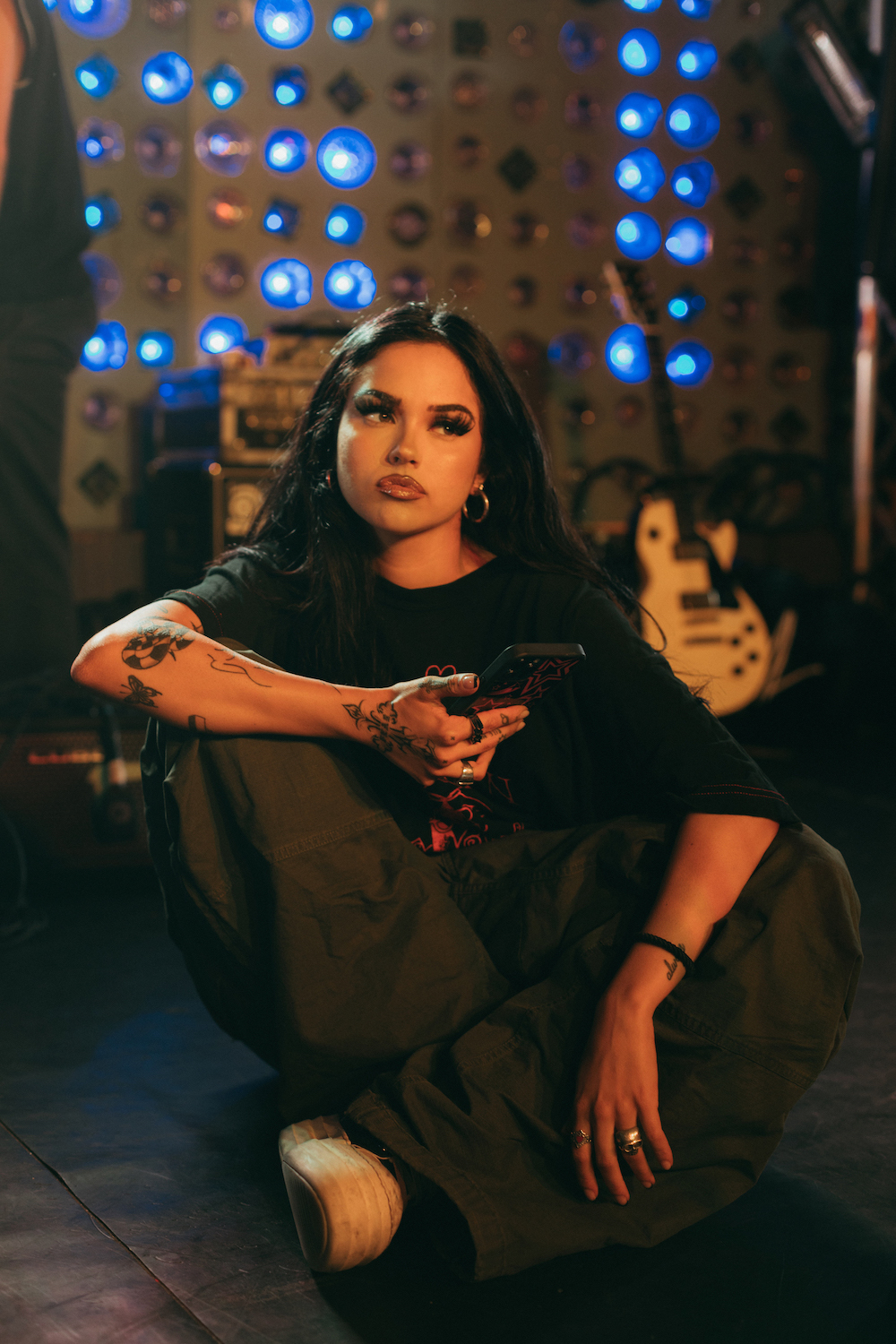
V: Have you always been nervous to perform?
ML: Yeah. It used to be way worse, to the point where, like, I would go on stage and the first song would always sound really bad because I was just so nervous and my voice would shake. It’s way easier now, but I do still get nervous.
V: Do think that’s just because you want the show to go well? Or are you nervous about what people are going to think of you?
ML: Honestly, it’s all of it. I want it to go well and I’m nervous about what people are going to think, but I’m also thinking about not fucking up lyrics, making sure I look good, and that it all sounds good. There’s so much that I’m just thinking about.
V: In terms of soundcheck, what does that process look like for you?
ML: It’s always different because it depends on how long I have. We’ll usually just run a couple songs. I like to do the songs that have the most range, just so I can hear everything in my ears and make sure everything sounds good. And then we check the whole band one by one.
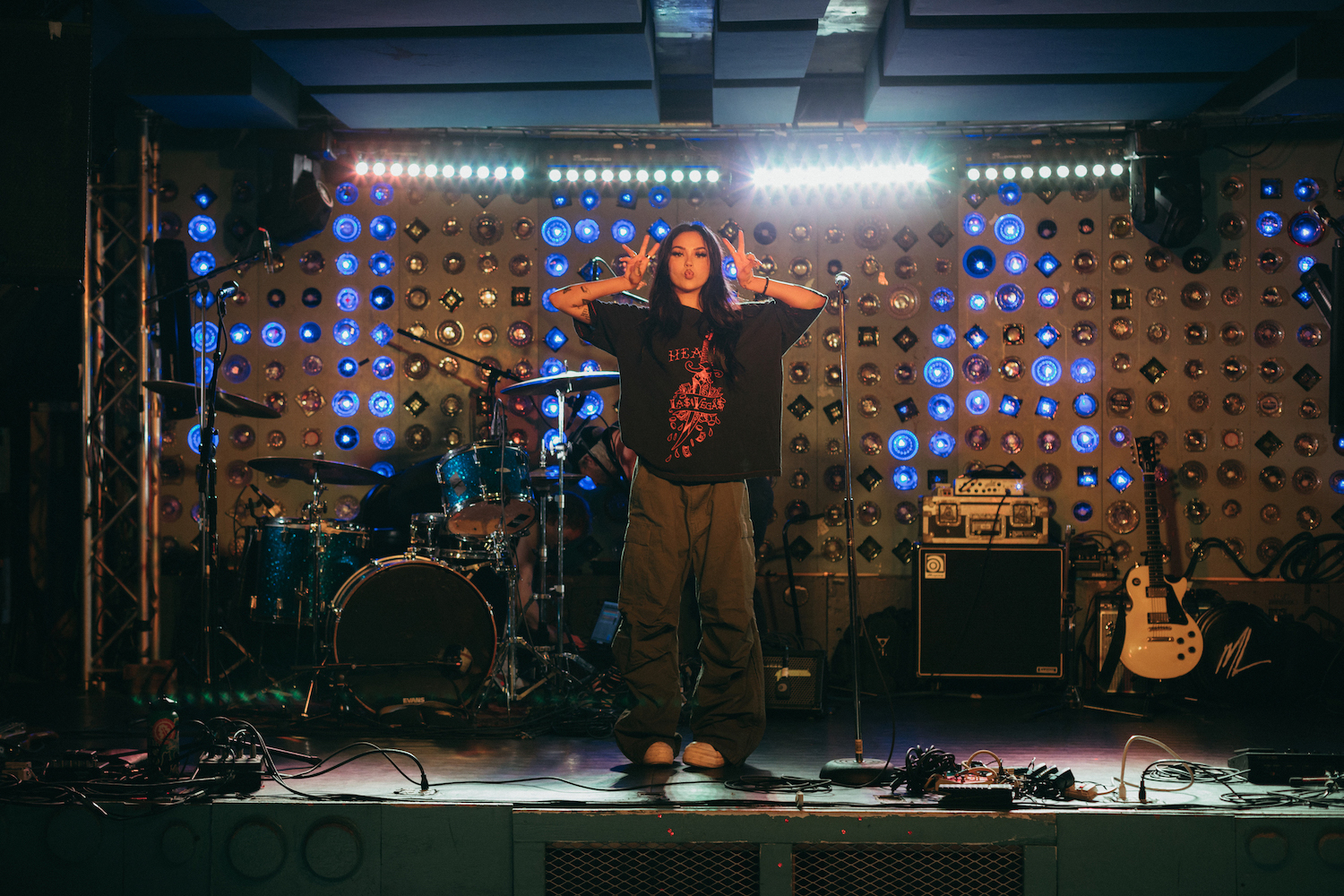
V: Going a little more broad, what’s your favorite thing about performing?
ML: I honestly just love singing. And I like seeing people’s reactions to the show.
V: Do you usually make a point to look out and see how people are reacting?
ML: I actually try really hard not to, because if I see one person that looks uninterested it’ll kill my vibe. Like, obviously I’m looking at the crowd the whole time, and it is always cool to see people smiling and recording and just having fun.
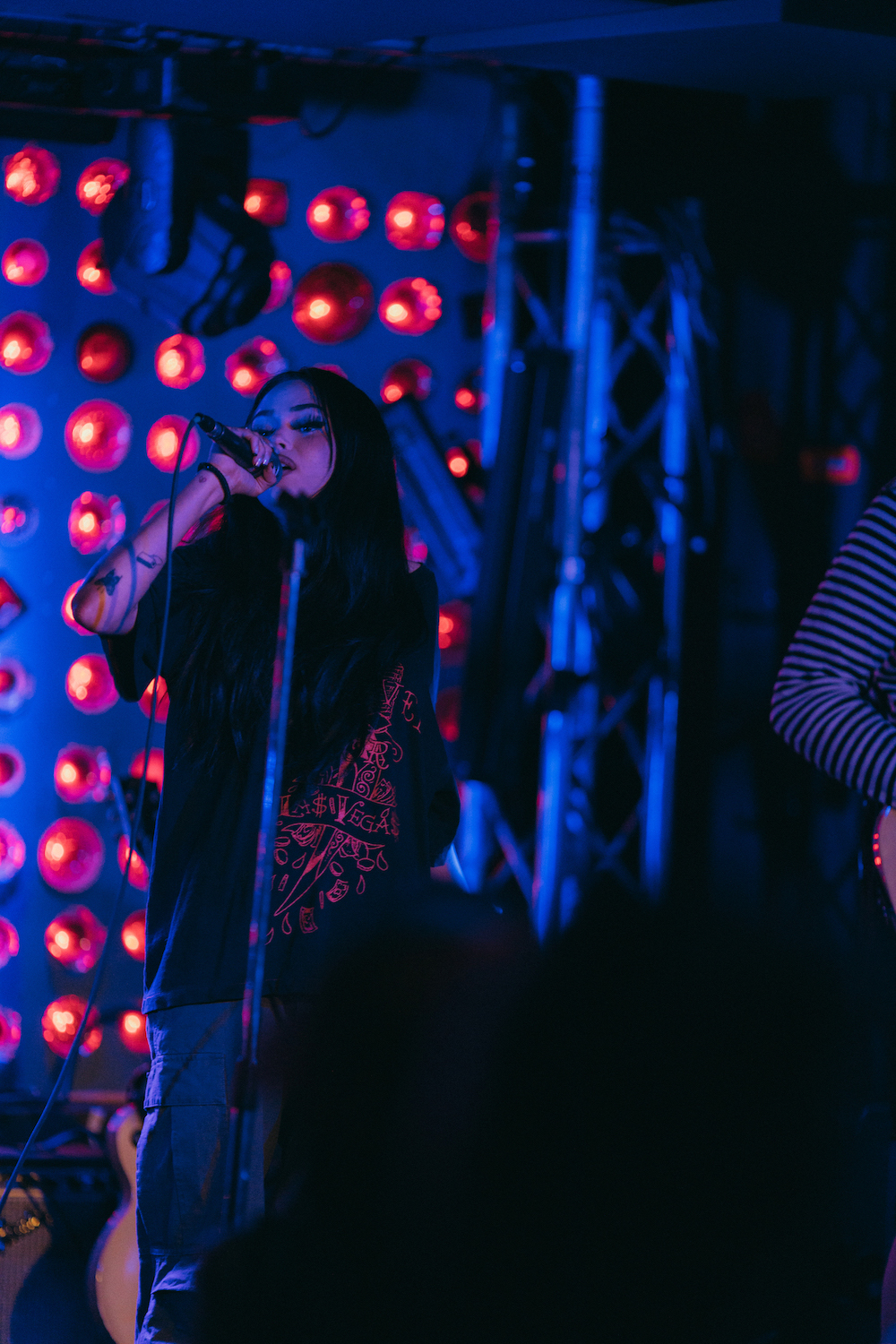
V: Delving into your music, what does your songwriting process look like?
ML: I’ll go into the studio with an idea, usually. And then we’ll figure out the production, and from there to melody passes, and just start coming up with lyrics. I usually write with another person or two other people, but lately I’ve been writing by myself, which I realized I really like doing.
V: Is that because you don’t want outside influences on what your lyrics are trying to say?
ML: Yeah, because sometimes it’s like, ‘Oh, that’s really good idea, but it’s kind of like veering off from what I actually went through.’ And then that’s how a song kind of gets a little bit tainted, because like, it can still be cool, but it’s not exactly what I’m trying to say. I want to make sure that everything I’m doing is exactly what I want it to be.
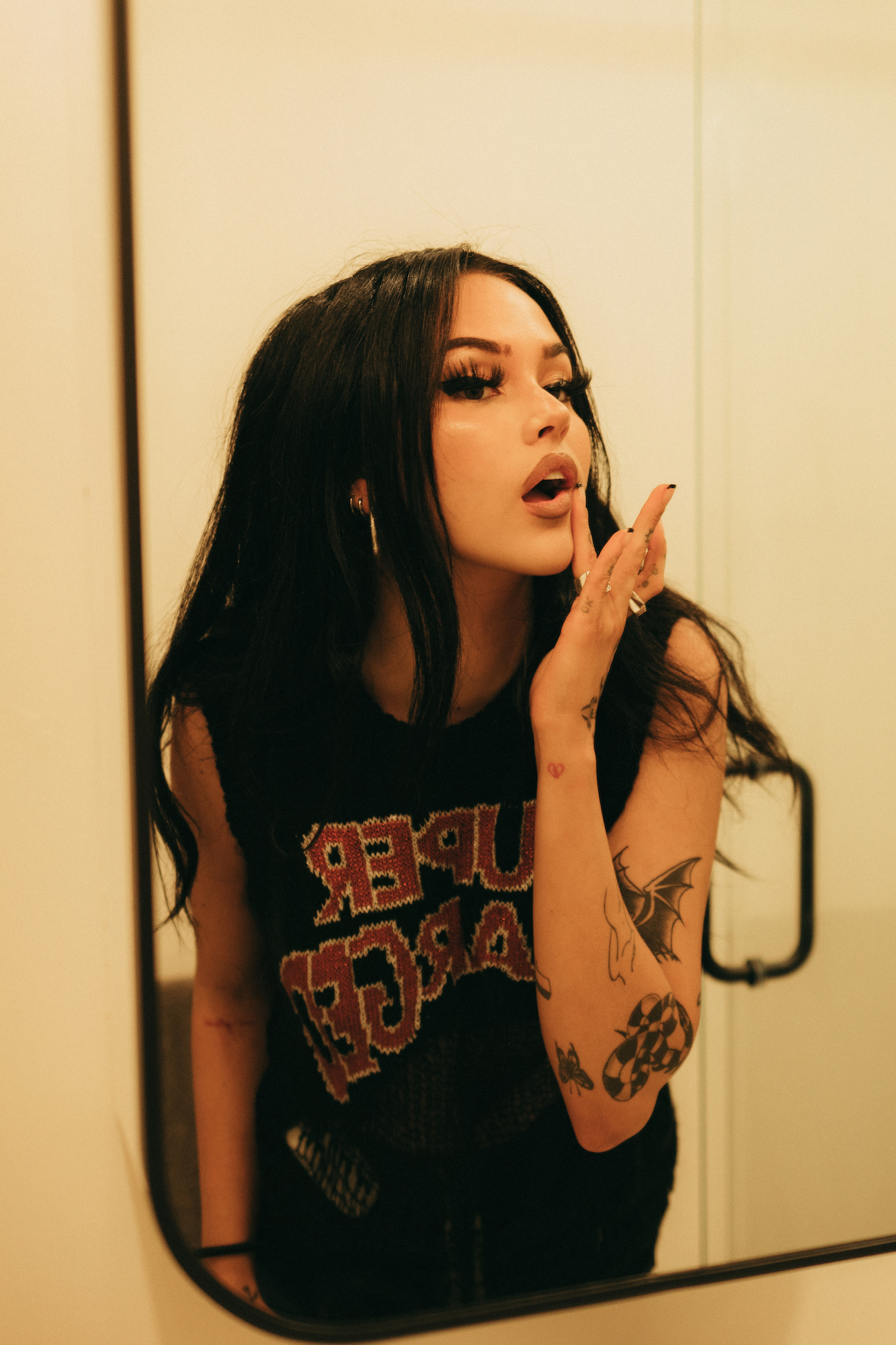
V: I know your last album was pretty personal. How do you get into that headspace and let yourself be vulnerable?
ML: Music is just vulnerable, and I like listening to music that’s really vulnerable. So for me, it’s not hard to tap into that when I’m making music. Like, the minute I start writing and I hear melodies and stuff, it just becomes really natural.
V: Do you think of it as like, therapeutic in a way?
ML: Definitely. I don’t go to therapy or anything, so it is kind of like my therapy.
V: So then, do you think the new album that’s coming out reflects where you are in life right now?
ML: It’s reflective of where I was when I was writing it. I finished it a while ago at this point, so I’m definitely not in that place that I was in anymore. A lot of new songs I don’t really relate to at the moment.
V: Is that weird then thinking about performing them now that it’s not where you’re at?
ML: Not really, because I still remember all the places I was in when it wrote it. But it’s funny because even when I finished Paranoia, and as time even continues to go by, I listen to certain songs and I’m like, oh, that relates to me now, but like in a completely different way than it did back then.
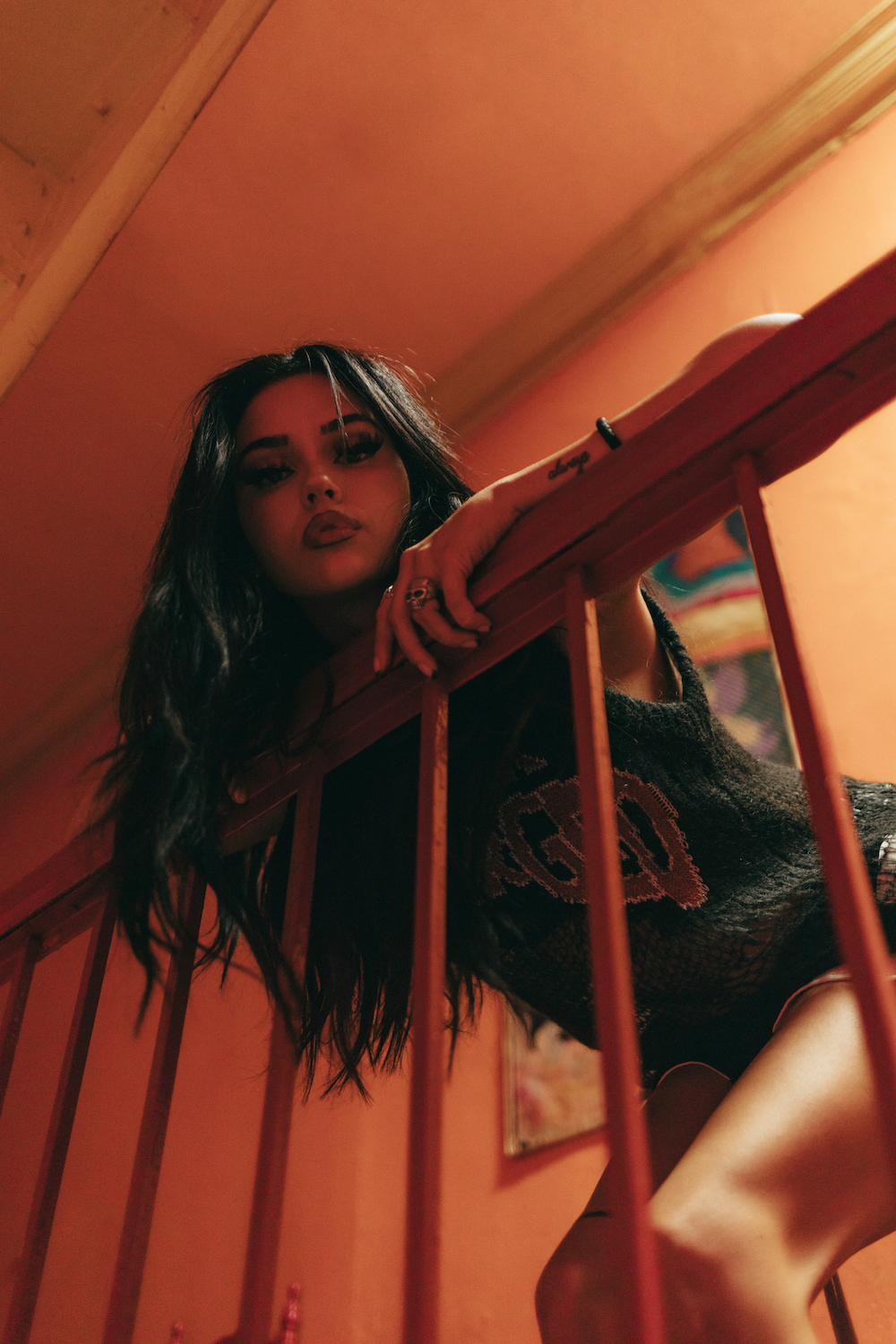
V: So, for SUCKERPUNCH, how many songs did you write, versus how many made it on?
ML: I wrote a lot for this album, probably like 30. There’s 15 on it.
V: Would you ever keep them for like later stuff, or just scratch them?
ML: Maybe. I think there’s like, two that I really liked that I just didn’t put on. There are also a couple songs that I really liked that didn’t make it on the EP and I was like ‘oh, I’ll just put them on SUCKERPUNCH.’ And then when I was writing, I realized they didn’t really match anymore, because I feel like I’m always in such a different place.
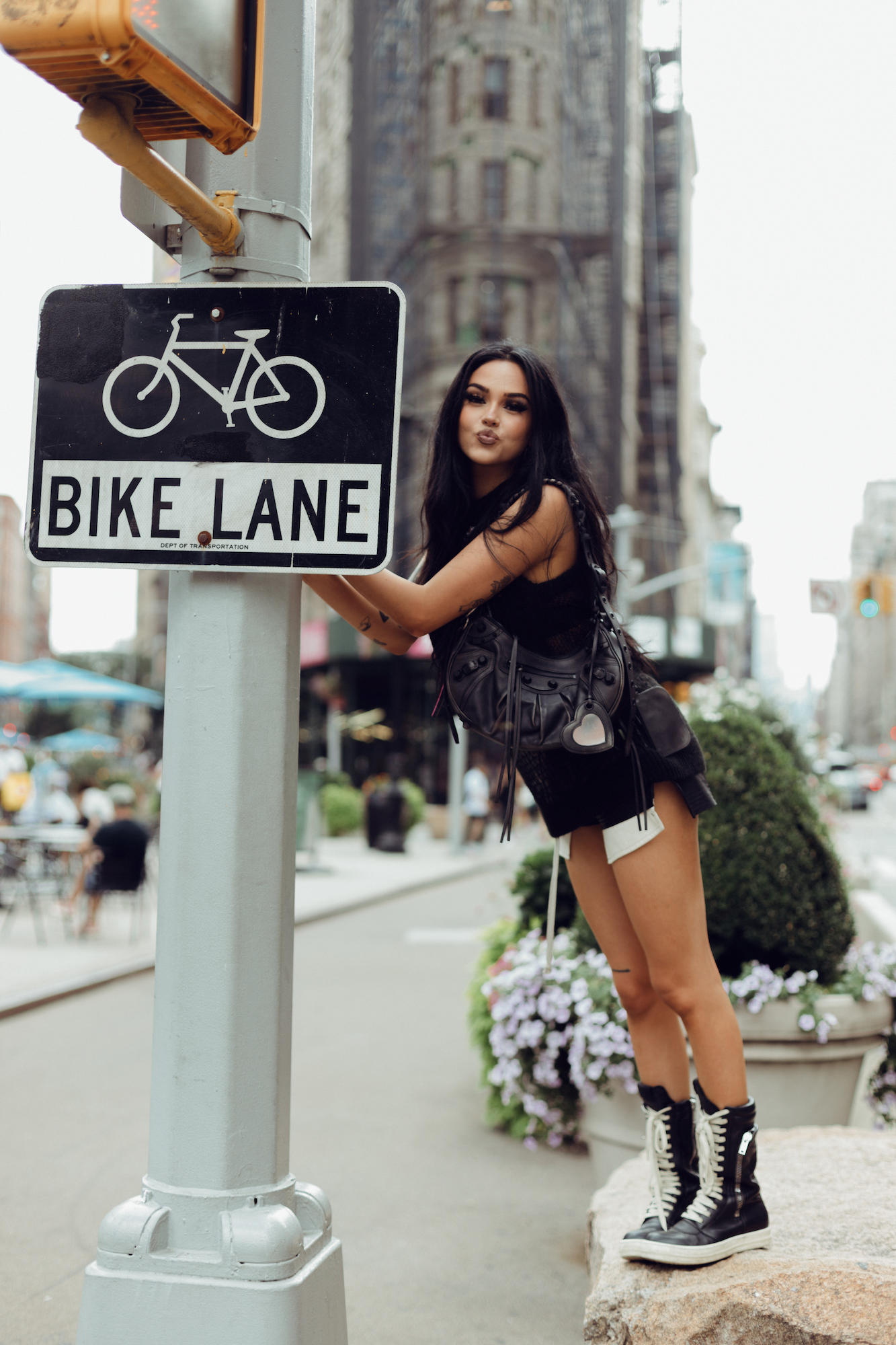
V: Who are your biggest musical influences? Are any places in your songs where you can really hear that influence?
ML: Amy Lee from Evanescence has a really big influence on me melodically. I tend to do a lot of her melody vibes. Definitely Hayley Williams, and Melanie Martinez with her writing style. Also Avril for sure.
V: If you could collaborate with anyone, who would it be?
ML: I don’t know. I never think of who I want to collab with, it’s kind of more just that I hear my songs and I’ll think of someone who would sound really good on it. But like, there’s so many people that I would love to work with if they reach out.
V: Is it ever like, you get inspiration if you’re listening to the radio or something and then think ‘oh, I could reach out to them?’
ML: Oh, definitely. I’ll also hear songs by people and then I’m like, ‘Oh my god, I love that vibe. That would sound so cool.’
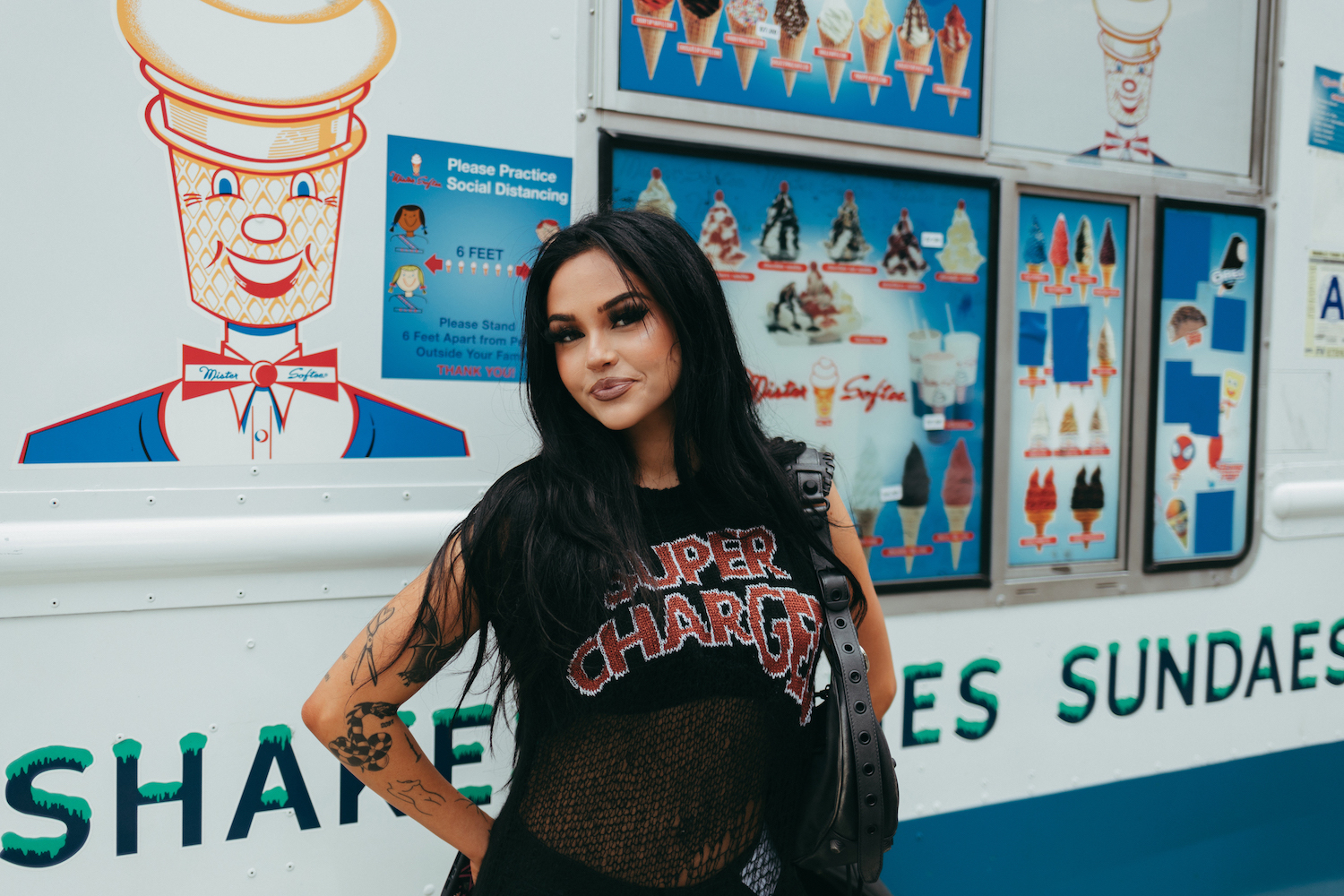
V: Do you think that you have more creative control over stuff like that now that you’re releasing music under your own label?
ML: Definitely. Everything I do now is just me, so it’s definitely different. When I was with the label, it would be me and then it would go through, like, 50 people, which is not what you want. Now, everything you see, from videos, to songs, to photoshoots, it’s all me.
V: I think from the outside that comes through. You seem to have more ownership of it all.
ML: I like it when people say that they see it, because I’m at the point where I want everything I do to feel authentic. Like, it doesn’t feel like I’m putting on a show. I hope everyone sees that.
V: You’ve been making music for a long time. How would you describe the evolution of your sound? I feel like it’s kind of gone from more bubblegum pop to more alt/rock.
ML: When I first started, I was immediately signed to a label. Before that, I was trying the rock thing, but when I was signed, they just took it in a super bubblegum direction. I was just this young, cute, small girl, and they were like, ‘that’s what you have to do.’ I just didn’t feel like it really related to me at all, so I got out of that. I grew up listening to rock – my family’s a huge rock family – and I just wanted to do that again. So, I made one song before Paranoia that was rock, and then I had Travis Barker feature on it. It just felt so natural and fun. Even with SUCKERPUNCH, like it’s like Paranoia but x10, going a little bit darker.
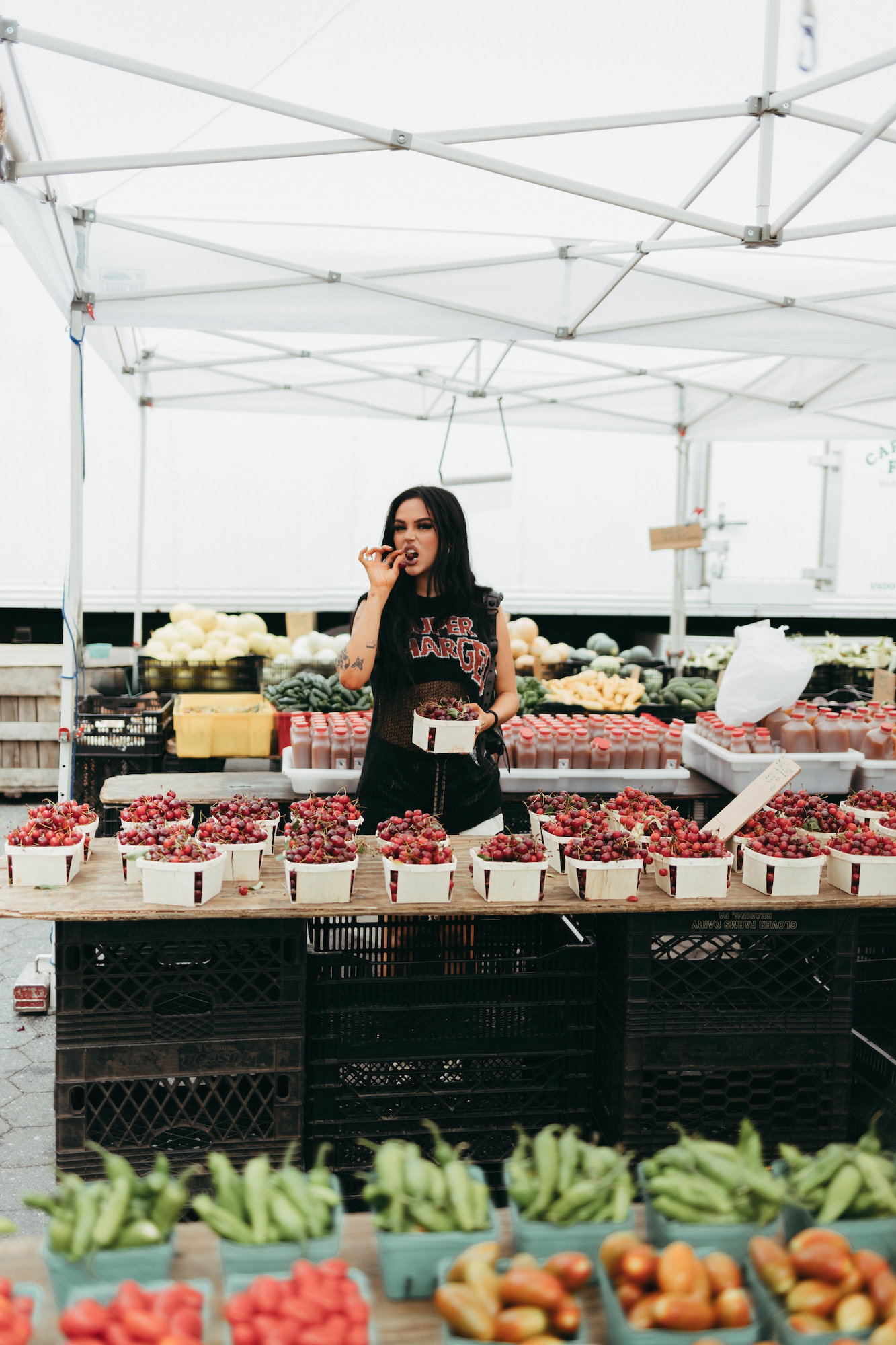
V: What was the process like as you were trying to nail down your sound? Did it always just feel natural?
ML: There were definitely some things that were hard about it, just trying to make sure that it all felt right. So it’s natural, but it’s still complicated. It’s fun, though.
V: Was it hard personally trying to break out of the mold that you were sort of shoved in?
ML: Ugh, yeah. A lot of people were confused and didn’t take it seriously because they thought I was just going through a phase. They were like, ‘Oh, you’re trying this new rock thing because a lot of people are doing it now.’ It was really frustrating, because if you go to the bottom of my Instagram, or if you know anything about what I was like before all this, you’d know that this is who I’ve always been. The bubblegum pop thing was the phase.
V: I can see how hard it would be on both sides, because you were already stuck in the mold when you were first introduced to a lot of your fans.
ML: Exactly.
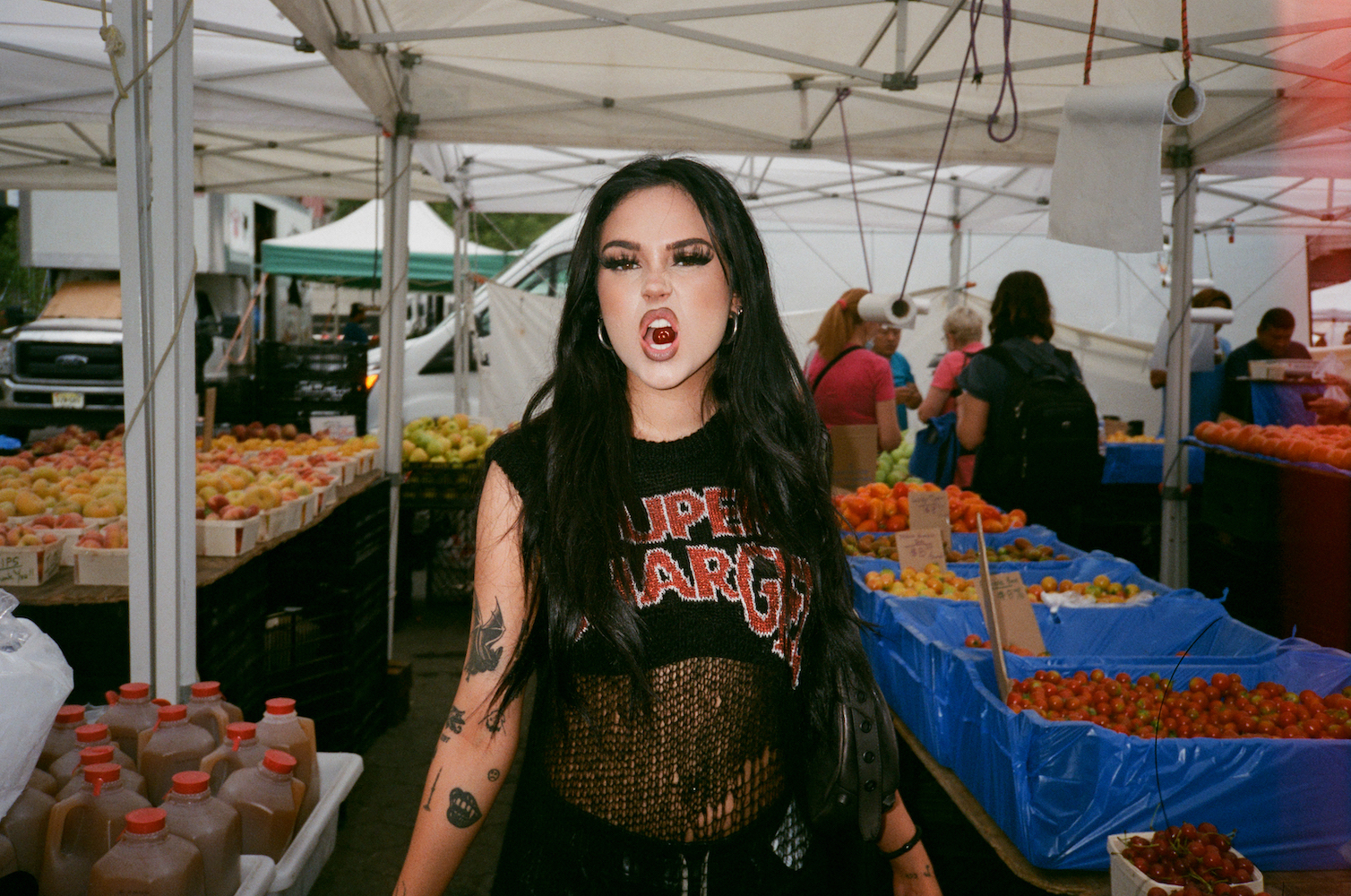
V: So then, how do you think expressing yourself fully reflects in your personal style?
ML: Even back when I was doing “Obsessed,” I started dressing the way I wanted. People in the comments would say that my music doesn’t match my personal style. So now, I really feel like my music matches who I am, and I think music has a huge influence on my style. Just in general, music has such a big impact on the way we dress.
V: Does that translate to your own clothing line? [SWIXXZ, with retailer Zumiez]
ML: Yeah, definitely. My line is unisex, anyone can wear it, but it’s in the girl’s section which was really important to me. When I used to shop when I was younger, I would go to the men’s section because I felt like that’s where all the cool clothes were. So, that’s what I made this line for, for clothes that felt like me to be in the girl’s section. And then with the music, it influences it so much. Like I said, I think music has such a direct reflection on people’s style.
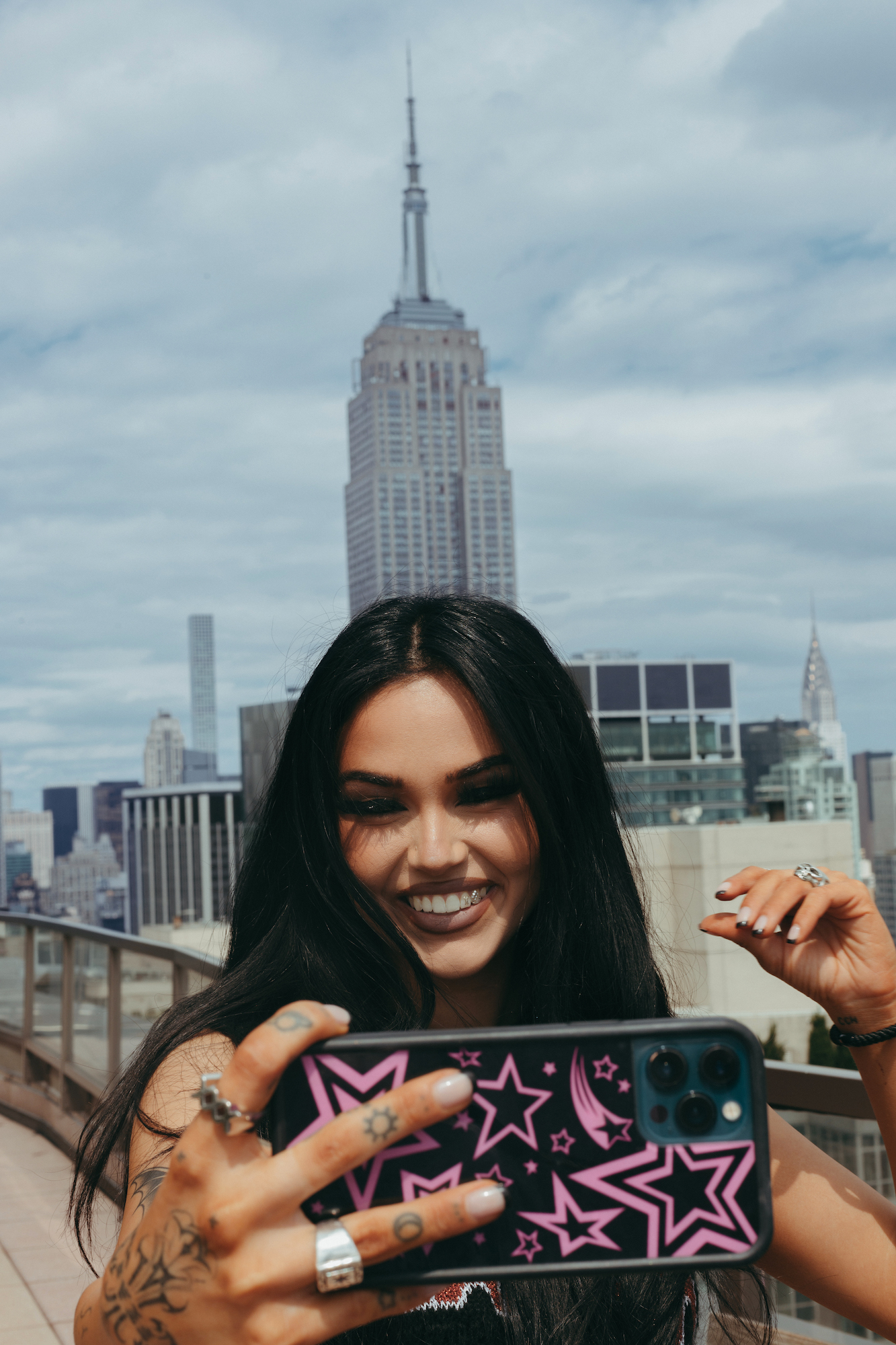
V: Back to the music to wrap things up. What are you most looking forward to in regard to people hearing this new album?
ML: I’m just excited to see how people like it. I’m always nervous, but I’m also really excited. I hope you can see the work I put into it, and that people just feel more connected to me.
Lindemann’s debut album, SUCKERPUNCH, is out Sept. 16. You can buy tickets to her special shows here.
Discover More
